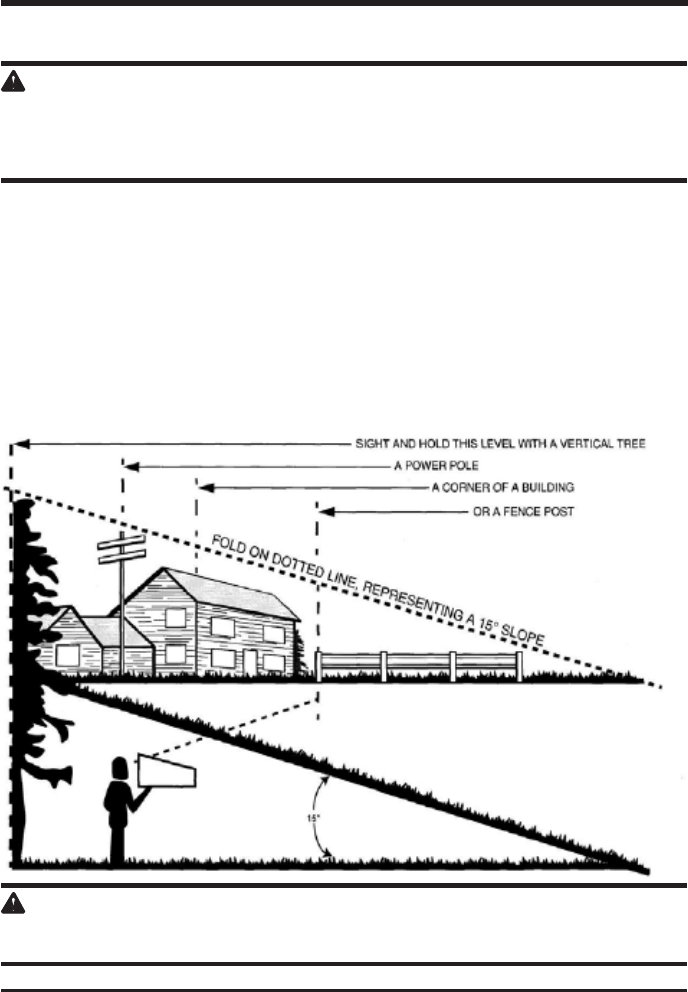
20
SLOPE GAUGE (See Figure 11)
W A R N I N G
Slopes are a major factor related to accidents involving slips and falls, which can result in severe
injury. Operating the mower on a slope requires extra caution. If you feel uneasy on a slope,
do not mow it. For your safety, use the slope gauge that is included as part of this manual to
measure slopes before operating this unit on a sloped or hilly area.
• Mow across the face of a slope, and never up and down. Exercise extreme caution when
changing direction on a slope.
• Watch for holes, ruts, rocks, hidden objects, or bumps that may cause a slip or a trip. Tall
grass can hide obstacles.
• Always be sure of your footing. If you feel like you are losing your balance, release the blade/
motor control handle immediately. The blade will stop rotating within 3 seconds.
• Do not mow near drop-offs, ditches, or embankments, because you could lose your footing or
balance.
• Do not mow a slope that has an angle of greater than 15°, as determined using the slope gauge.
• Do not mow wet or damp grass. Unstable footing can cause slipping.
W A R N I N G
Do not mow a slope that has an angle of greater than 15° (a rise of approximately 2 1/2’ [.75 m]
every 10’ [3 m]). Mow across the face of a slope, and never up and down.
OPERATING YOUR LAWN MOWER
Fig. 11


















